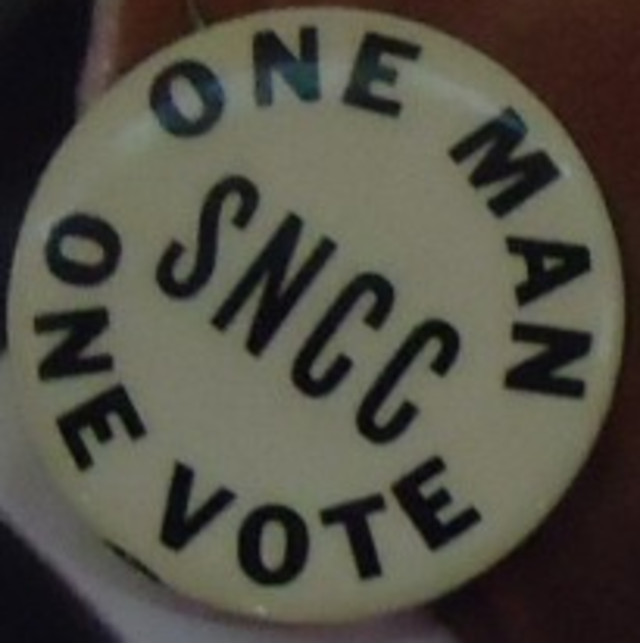Student Nonviolent Coordinating Committee (SNCC)
Student Nonviolent Coordinating Committee Papers, 1959-1972
One of the most important civil rights groups in the late ’50s and early ’60s, the Student Nonviolent Coordinating Committee (SNCC) was also to become one of the most controversial in its later years. Formed by student activists nationwide in response to the burgeoning student sit-in movement in 1960, the SNCC adopted the Gandhian theories of nonviolent direct action, which had been formulated by CORE in the 1940s.
The collection includes correspondence, project files, internal reports, and printed materials generated by the SNCC organization as it challenged racial barriers, faced internal crises, and sought a leadership role in the fight for desegregation, voter’s rights, and black power, collected on 73 reels. The development of the SNCC can be assessed and compared with other organizations of the period. Among historical landmarks for study are:
– John Lewis’s election as SNCC chairman in 1963, which signaled the start of the organization’s most active period.
– The Mississippi Summer Project in 1964, which brought the SNCC national prominence.
– The election of Stokely Carmichael as SNCC chairman marked the radicalization of the group.
– The 1967 election of H. Rap Brown as chairman marked an even greater shift toward militarism.
FINDING AID: Student Nonviolent Coordinating Committee Papers, 1959-1972
FBI File on the Student Nonviolent Coordinating Committee
The Student Nonviolent Coordinating Committee (SNCC) was organized in 1960 to encourage voter registration for blacks in the Deep South. Under Stokely Carmichael, the group pushed for economic enfranchisement and advocated black supremacy. The FBI maintained a file on the SNCC because Communists were believed to be infiltrating its leadership. This file comprises reports from nineteen cities, including Atlanta (SNCC national headquarters), Chicago, Dallas, and San Francisco. Each section is in chronological order, spanning 1964 to 1973. The file contains addresses, membership, and information on groups believed to associate with the SNCC (2 reels).
FINDING AID: FBI File on the Student Nonviolent Coordinating Committee



